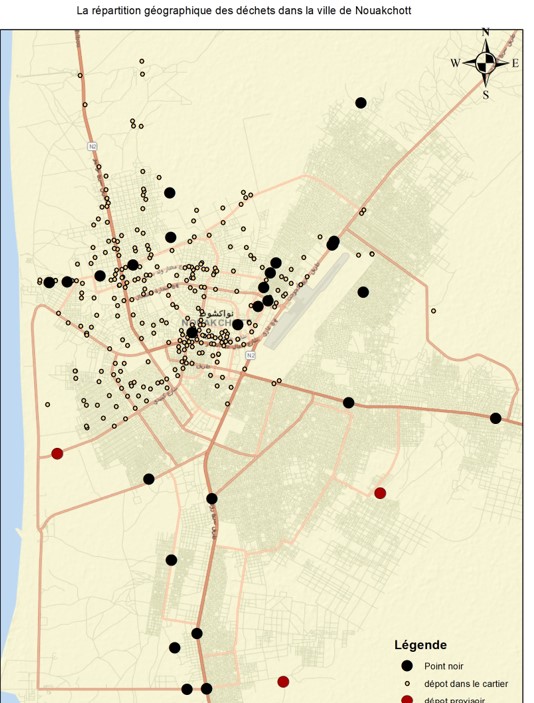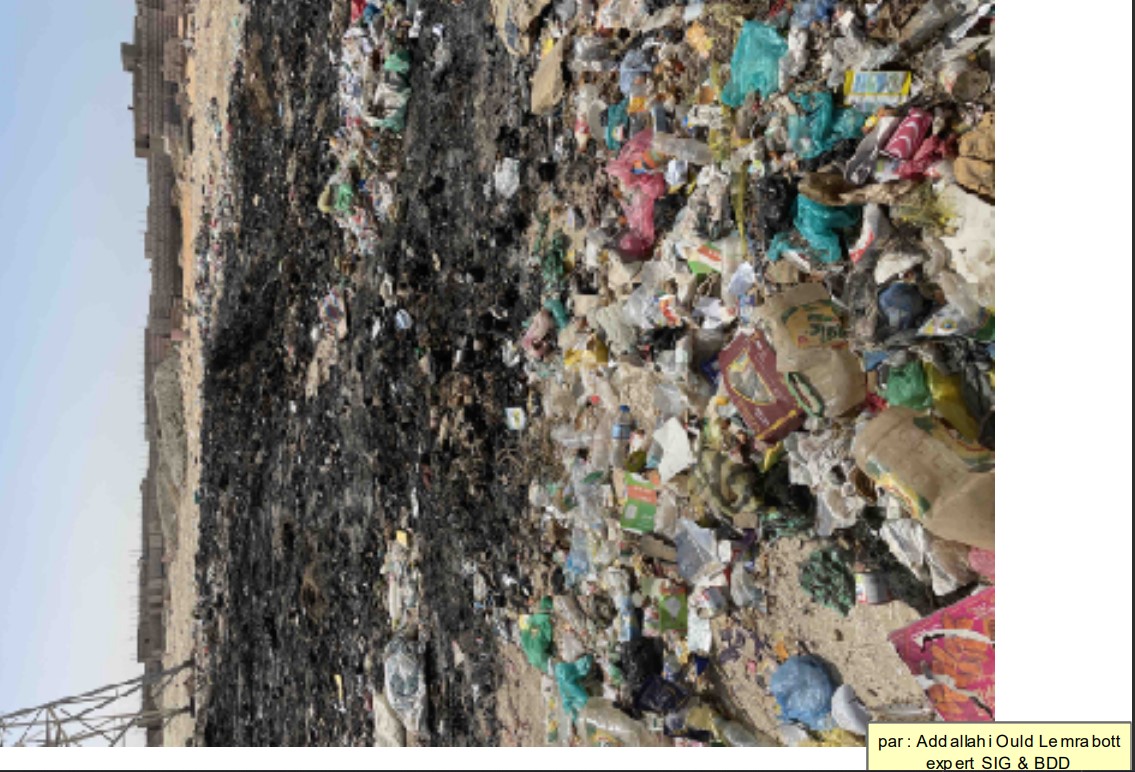Challenge statement
Challenge type: If you are working on multiple challenges, please indicate if this is your "big bet" or "exploratory" challenge.
Please note: we ask you to only submit a maximum of 3 challenges - 1x Big Bet, 2x Exploratory. Each challenge must be submitted individually.
BIG BET
Challenge statement: What is your challenge? (Please answer in specific terms: "Our challenge is that...”.)
Our challenge regarding waste management in Mauritania is multifaceted. One aspect of the challenge is the lack of a comprehensive waste management system in the country, resulting in the uncontrolled dumping of waste in various locations. This has resulted in adverse environmental impacts such as soil contamination, air pollution, etc. Another aspect of the challenge is the lack of awareness among citizens regarding the proper management of waste, including the separation of recyclable materials from non-recyclables. This leads to poor recovery of valuable resources and exacerbates the problem of waste accumulation. Additionally, there is a need to promote sustainable waste management practices that can be easily adopted by the community and integrated into the existing social and economic fabric of the country. To address these challenges, Acclab is considering ongoing work and implementing a comprehensive waste management strategy that includes spatial mapping of waste disposal sites across the country, the development of a waste database and monitoring system, promoting recycling and composting, and capacity building for citizens and government agencies.
Background: What is the history of your challenge? What is causing or driving it? Who is involved? How does the current situation look like? What undesired effects does it produce?
The challenge of waste management in Mauritania has been a longstanding issue that has escalated in recent years. Rapid urbanization, coupled with population growth, has led to an increase in the amount of waste generated in the country. Unfortunately, the city of Nouakchott for example, lacks a comprehensive waste management system, and as a result, waste is being dumped in various locations, including along the streets and in open areas. This practice has resulted in adverse environmental impacts, such as soil contamination, air pollution...etc. Moreover, the improper disposal of waste has led to the proliferation of disease vectors, which pose health risks to citizens. The lack of awareness among citizens regarding the proper management of waste, including the separation of recyclable materials from non-recyclables, exacerbates the problem of waste accumulation. The Lab intends to bring the government, non-governmental organizations, private sector, and concerned citizens together in efforts to address this challenge by implementing a comprehensive waste management strategy that includes spatial mapping of waste disposal sites, development of a waste database and monitoring system, promoting recycling and composting, and capacity building for citizens and government agencies.
Quantitative evidence: What (official) data sources do you have on this challenge that better exemplifies the importance and urgency of this frontier challenge? You can add text, a link, or a picture.
Research has shown that households in urban areas generate an average of 0.5kg/day of waste per capita and 0.3kg/day per capita in rural areas in Mauritania. Solid waste-related emissions are anticipated to increase to 2.38 billion tonnes of CO2-equivalent per year by 2050 if no improvements are made in the sector.
The lack of a comprehensive waste management system has resulted in waste being dumped in various locations, including along the streets and in open areas. This practice has resulted in adverse environmental impacts such as soil contamination, air pollution, and degradation of natural habitats. Moreover, it has led to the proliferation of disease vectors such as rodents and flies which pose health risks to citizens.
Acclab intends to engage with the government, non-governmental organizations (NGOs), and concerned citizens to address this challenge by implementing a comprehensive waste management strategy that includes spatial mapping of waste disposal sites, development of a waste database and monitoring system, promoting recycling and composting, and capacity building for citizens and government agencies.
https://issuu.com/asw2sss2swhcsss/docs/nouakchott_guide_to_resilience_2021/s/12204806
https://datatopics.worldbank.org/what-a-waste/trends_in_solid_waste_management.html

Qualitative evidence: What weak signals have you recently spotted that characterizes its urgency? Please provide qualitative information that better exemplifies the importance and urgency of this frontier challenge. You can add text, a link, or a picture.
Observations of waste accumulation: AccLAB team is observing the uncontrolled dumping of waste in various locations across the city, including in open areas and on street corners. This waste accumulation can lead to foul odors, unsightly scenery, and the proliferation of disease vectors.
Informal conversations with citizens: Through informal conversations with citizens, the Lab team gained insight into citizens awareness and perception of waste management practices. For example, the Lab discovered that many citizens are unaware of the health and environmental risks associated with improper waste disposal.
Social behavior: Social behaviors can indicate a lack of awareness or concern for the environment. For example, the Lab observed that people littering or dumping waste in public places, indicating a need for education and awareness campaigns on proper waste disposal practices.
Value proposition: What added value or unique value proposition is your Accelerator Lab bringing to solving this challenge? Why is it your Lab that needs to work on this challenge and not other actors within UNDP, other stakeholders in the country respectively? Why is it worth investing resources to this challenge?
Acclab has already engaged in mapping the spatial distribution of waste sites across the capital city, which resulted in generating key non-traditional database, georeferenced with information on the type of the disposal site, group and subgroup of the waste, etc, that adds value in terms of the data gaps about the waste management in Mauritania. This database is expected to be extended across the country in a scaling up phase.
Short “tweet” summary: We would like to tweet what you are working on, can you summarize your challenge in a maximum of 280 characters?
The #acclab in #Mauritania is engaged in tackling the waste management challenge through leveraging innovative mapping technics related to waste management across the country and contributing in building cleaner and healthier cities for all. #wastemanagement
Partners
Who are your top 5 partners for this challenge? Please submit from MOST to LEAST important and state Name, Sector and a brief description of the (intended) collaboration.
Please state the name of the Parter:
Ministery of Enviroment and sustainable development
What sector does our partner belong to?
Government (&related)
Please provide a brief description of the collaboration.
The collaboration builds upon the role palyed by the ministery as the key actor concerned by the enviroment-related challenges. The collaboration can be considered through the technical support in terms of non-traditional data generating methods to inform the decision making process about the waste management in the country.
Is this a new and unusual partner for UNDP?
No
Who are your top 5 partners for this challenge? Please submit from MOST to LEAST important and state Name, Sector and a brief description of the (intended) collaboration.
Please state the name of the Parter:
Mauritanian Company for Waste Transportation (SMTD)
What sector does our partner belong to?
Private Sector
Please provide a brief description of the collaboration.
The SMTD is the a private company in charge of waste collection and transportation. The generated database of waste sites across the country is expected to contribute in informing the SMTD about the optimal location to install the garbage bins.
This should contribute in adjusting the seperation of waste's behavior at the household-level as well as informing the SMTD with the waste-recovery sites.
Learning questions
Learning question: What is your learning question for this challenge? What do you need to know or understand to work on your challenge statement?
What are the root causes of the waste management challenges in Mauritania, and how can they be addressed?
What are some successful waste management strategies that have been implemented by other Labs with similar challenges, and how can they be adapted and applied to Mauritania?
What role can citizen engagement and participation play in promoting sustainable waste management practices in Mauritania, and how can they be effectively integrated into the waste management strategy?
What are the economic, social, and environmental benefits of effective waste management practices, and how can these benefits be quantified and disseminated to stakeholders to promote support and investment in waste management initiatives?
To what stage(s) in the learning cycle does your learning question relate?
Sense, Explore, Test, Grow
Usage of methods: Relating to your choice above, how will you use your methods & tools for this learning question? What value do these add in answering your learning question?
Acclab intends to organize several events such as workshops, round tables, hackathons, etc to extract information and data using collective intelligence and sensemaking and model future scenarios using future thinking and foresight methods and finally use data visualization methods to communicate and disseminate relevant information to different stakeholders for informed policymaking.
Existing data gaps: Relating to your choice above, what existing gaps in data or information do these new sources of data addressing? What value do these add in answering your learning question?
The acclab has noticed a substantial lack of data when it comes to waste in Mauritania. The above methods will help us in gathering information and data from different sources and make use of the collected data to extract relevant information about waste management.





 11Sustainable cities and communities
11Sustainable cities and communities 15Life on land
15Life on land
Comments
Log in to add a comment or reply.